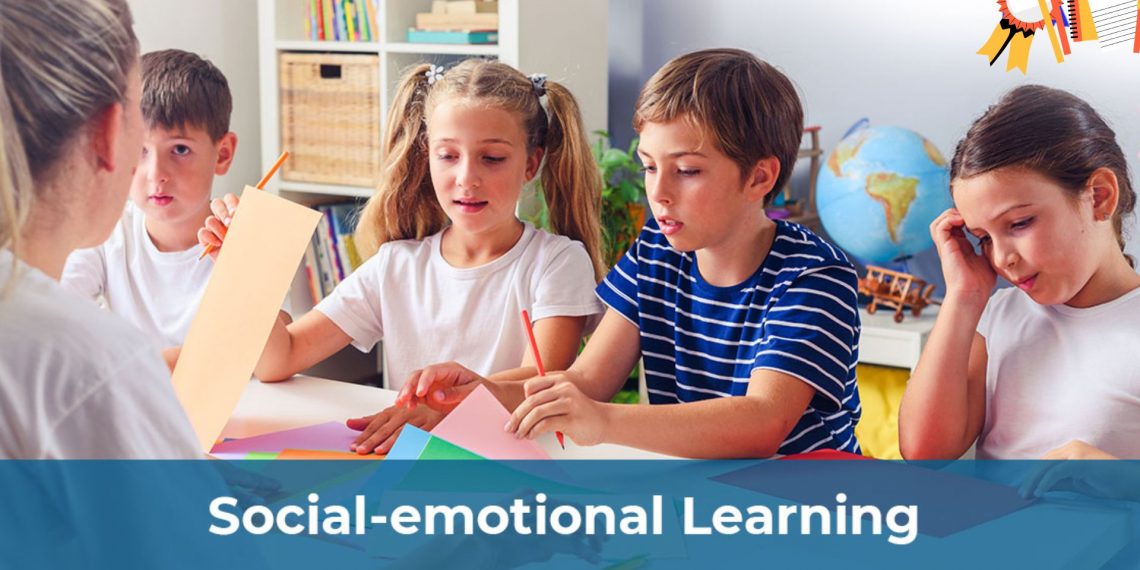Have you ever felt overwhelmed by a presentation at work? Struggled to communicate your feelings in a relationship? Or maybe you’ve witnessed a classmate feeling isolated at school. These situations all highlight the importance of a skillset that goes beyond academics or technical expertise: social-emotional learning (SEL). SEL isn’t some fad; it’s the key to unlocking your full potential and building a fulfilling life. Imagine navigating challenges with confidence, fostering meaningful connections, and making decisions that align with your values. That’s the power of SEL.
Why Does SEL Matter? The Human Story Behind the Skills
Think back to a time you aced a test or mastered a new skill. It felt great, right? But success extends far beyond academics or technical prowess. Our emotional well-being, relationships, and ability to navigate social situations all play a crucial role in our overall happiness and achievement.
This is where SEL comes in. It equips Sarah (and all of us) with the tools to manage emotions, build healthy relationships, and make responsible decisions. By developing her SEL skills, Sarah can learn to manage her anxiety before presentations, communicate effectively with classmates, and build a support network that fosters her well-being.
The benefits of SEL extend far beyond the classroom. Strong social-emotional skills are essential for success in the workplace. Imagine being able to collaborate effectively with colleagues, manage conflict constructively, and navigate difficult conversations with confidence. These are all skills honed by SEL, and they pave the way for career advancement and job satisfaction.
The Five Core Competencies: Your Roadmap to SEL Mastery
SEL isn’t a single skill; it’s a framework encompassing five core competencies:
- Self-Awareness: This is about understanding your emotions, strengths, weaknesses, and values. When Sarah becomes aware of her anxiety before presentations, she can develop strategies to manage it.
- Self-Management: This involves regulating your emotions, managing stress, and setting goals. By learning relaxation techniques and setting realistic goals for presentations, Sarah can take control of her anxiety.
- Social Awareness: This is the ability to understand the perspectives and emotions of others. By practicing active listening and empathy, Sarah can build stronger relationships with her classmates.
- Relationship Skills: This involves building and maintaining healthy relationships, communicating effectively, and resolving conflicts constructively. Sarah, through effective communication, can express her needs to her classmates and build a supportive network.
- Responsible Decision-Making: This is the ability to make choices that are safe, ethical, and consider the consequences. By understanding her strengths and weaknesses, Sarah can make informed decisions about her academic and social life.
Unpacking the Magic: Practical Tips to Develop Your SEL Skills
Now that you understand the core competencies, let’s explore how to turn them into action. Here are some practical tips to develop your SEL skills, with a human touch:
- Self-Awareness: Journaling your thoughts and feelings can be a powerful tool for self-discovery. Spend a few minutes each day reflecting on your emotions and their triggers.
- Self-Management: Mindfulness practices like meditation and deep breathing can help you manage stress and anxiety. Find a technique that works for you and incorporate it into your daily routine.
- Social Awareness: Pay attention to nonverbal cues and actively listen to others. Try to understand their perspectives and validate their feelings.
- Relationship Skills: Practice assertive communication skills, like “I” statements, to express your needs clearly and respectfully.
- Responsible Decision-Making: Consider the potential consequences of your choices before you act. Seek advice from trusted friends, family, or mentors when faced with difficult decisions.



